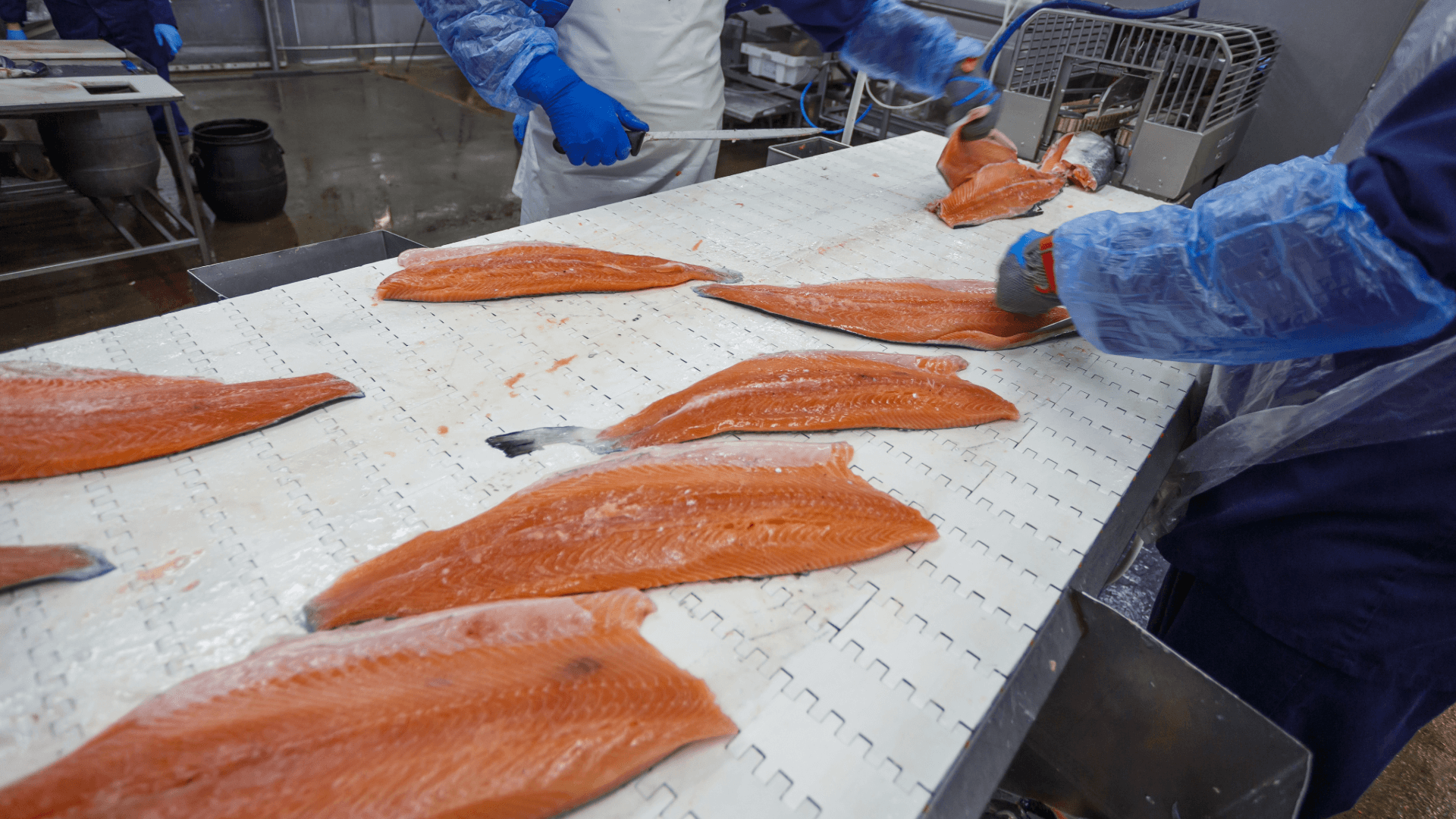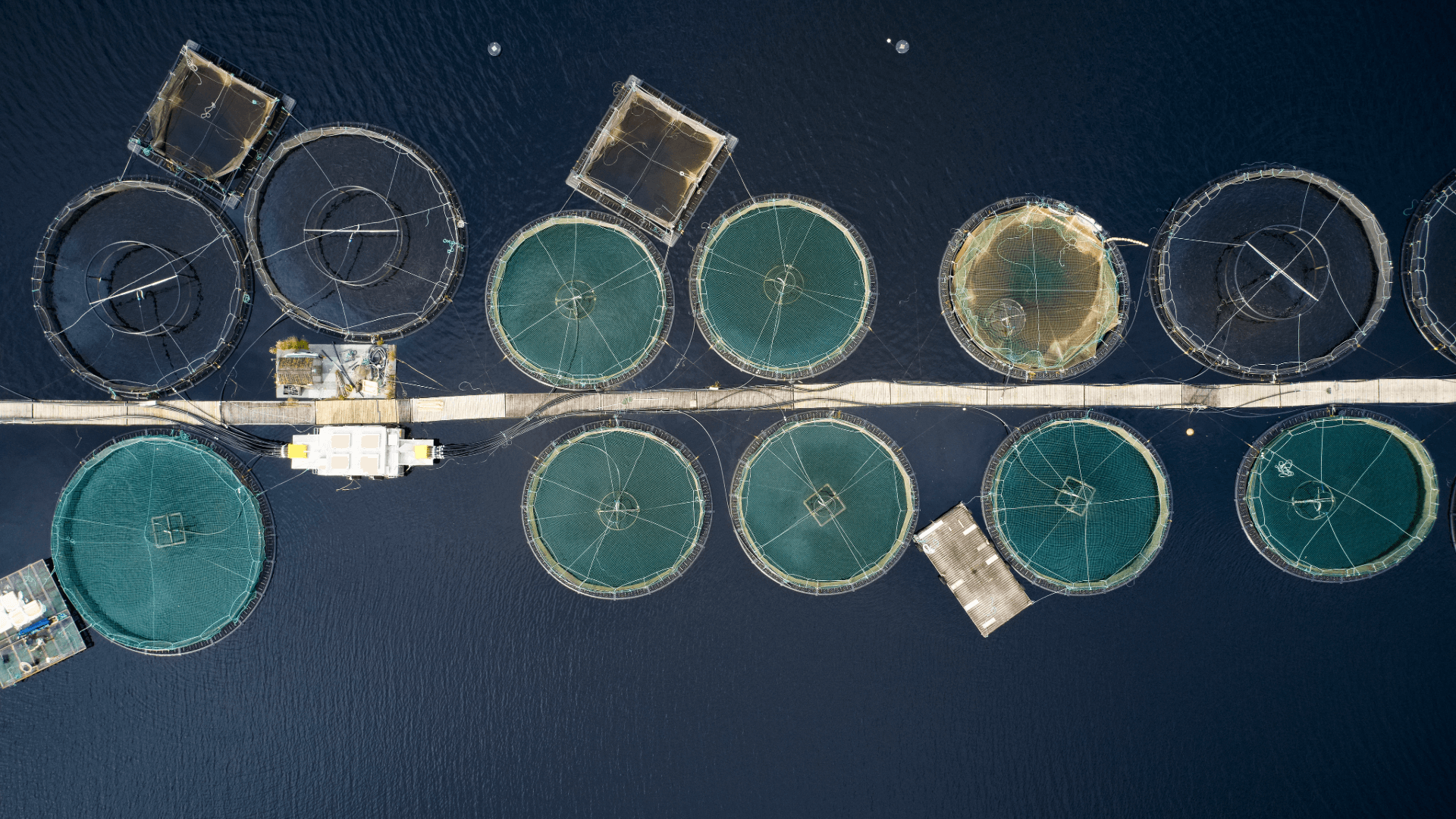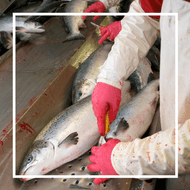Scottish Salmon Supplier Faces Scrutiny Over Welfare Violations
Posted by Emma on 9th Sep 2024 Reading Time:
A Scottish salmon farm, once a key supplier to Marks & Spencer (M&S), has admitted to "unacceptable lapses" in animal welfare practices. The revelations came after drone footage surfaced showing fish suffocating in conditions that breached strict welfare guidelines. The Royal Society for the Prevention of Cruelty to Animals (RSPCA) has since suspended the farm from its certification programme, raising questions about animal welfare standards in the salmon farming industry.

The footage, captured at a fish farm on the Isle of Mull and operated by Scottish Sea Farms, shows fish out of water for extended periods, with some reportedly struggling for up to two minutes. According to RSPCA guidelines, fish should not be out of water for more than 15 seconds unless anaesthetised. This breach of the rules has prompted immediate action, including temporarily suspending the farm's RSPCA Assured status.
M&S, which prides itself on sourcing responsibly and upholding rigorous animal welfare standards, sourced its salmon from Scottish Sea Farms until July. However, the supermarket chain ceased sourcing from the Mull farm after an unrelated oil leak incident. Although M&S did not purchase salmon from the site in August when the footage was captured, the company has expressed serious concerns and is awaiting the outcome of investigations.
M&S reiterated its commitment to upholding the highest animal welfare standards in a statement. "We take any allegations of animal welfare breaches extremely seriously," a spokesperson said. "All our salmon is RSPCA Assured, and we expect all suppliers to meet these standards."
Scottish Sea Farms has acknowledged the violations and taken immediate remedial action, including issuing new guidance on humane culling practices and providing refresher training to staff. Dr Ralph Bickerdike, the company's head of fish health and welfare, described the incident as a lapse in best husbandry practices but emphasised that corrective measures were swiftly implemented.
The RSPCA has launched an investigation and urged anyone concerned about animal treatment on its certified farms to come forward. The suspension of Scottish Sea Farms' membership means they cannot sell fish under the RSPCA Assured label until the issues are resolved.
The footage was shared by the animal rights group Animal Equality, which described the conditions as evidence of widespread animal cruelty. Abigail Penny, executive director of the group, said, "These images show fish desperately struggling in their final moments of life. It raises a broader issue about the welfare practices in the industry when no one is watching."

This is not the first time concerns about salmon farming in Scotland have been raised. Last year, Animal Equality shared similar footage with the Animal and Plant Health Agency. However, the agency could not confirm the fish's condition due to insufficient detail in the footage. Penny believes the problem is systemic, stating, "This isn't about one bad farm or one bad company; it's a widespread issue that needs urgent attention."
The incident comes when salmon farming is already facing significant challenges. Climate change and rising ocean temperatures have put additional pressure on the industry, with a record 17 million fish deaths reported in 2023. Last summer's extreme marine heatwave struck just before a period when salmon are particularly vulnerable to parasites and disease.
Salmon Scotland, the industry body representing salmon farmers, emphasised that its members are committed to maintaining the highest animal welfare standards. "We take the health and welfare of the fish in our care extremely seriously," said Dr Iain Berrill, head of technical at Salmon Scotland. "Our members are continuously working to exceed statutory requirements."
The controversy has led to increased calls for a boycott of farmed salmon, with notable figures like naturalist Chris Packham urging consumers to reconsider their purchasing decisions. The combination of climate-related challenges and ongoing welfare concerns has spotlighted the sustainability and ethical implications of salmon farming in the UK.

